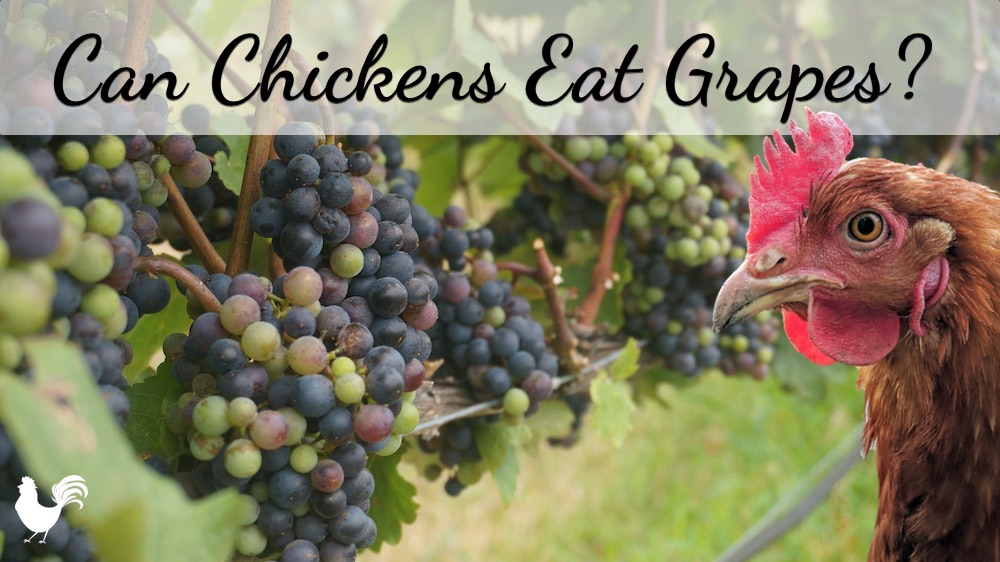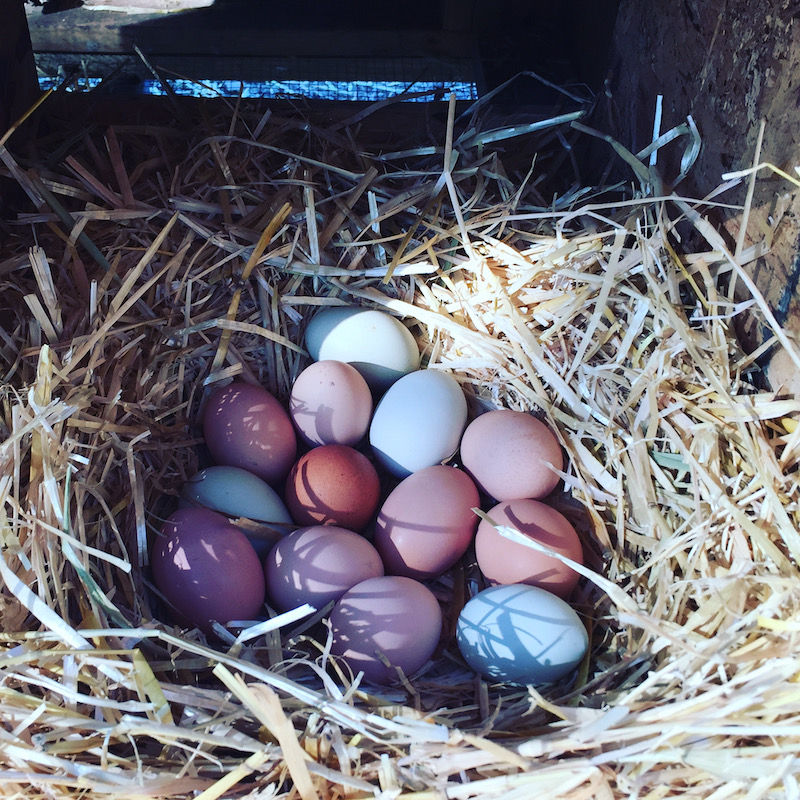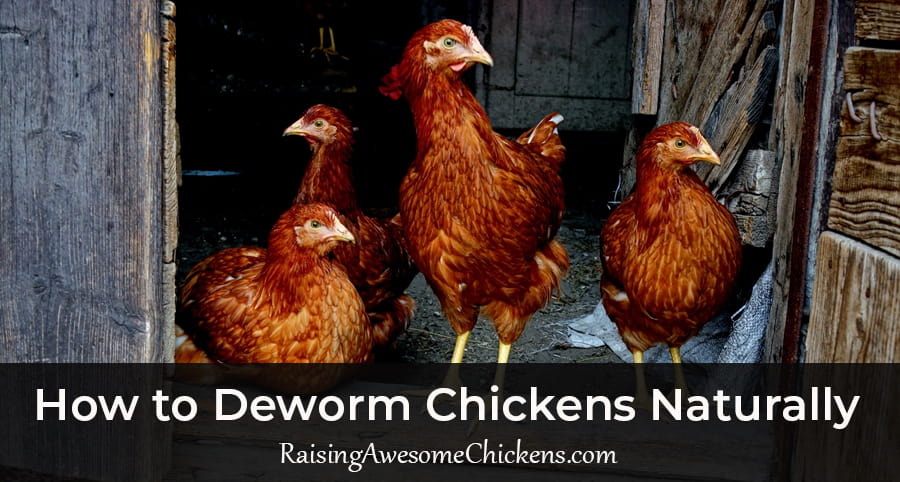Last Updated on February 9, 2024 by AwesomeChickens
There is nothing worse than waking up in the morning, going to the chicken coop to feed your farm animals, and then notice you’re missing a few, or even an entire flock. This is a devastating experience for anyone who raises chickens and, unfortunately, it happens all too often. That’s why it is essential to know what animals can eat your backyard chicken and who to watch out for.
The most common culprits known for eating chickens are smaller predators such as skunks, raccoons, foxes, and weasels. These animals are small enough to squeeze through cracks and holes and can cause chaos within minutes.
In this article, we will provide you with a list of animals you should keep an eye out for and all the ways you can help protect your flock.
Table of Contents
What Killed My Chickens?
Did something get into your coop and wipe out your flock? Specific animals leave some sure signs to help indicate who ate your chickens, giving you a place to start with capturing them or at least preventing it from happening again.
Missing Chickens
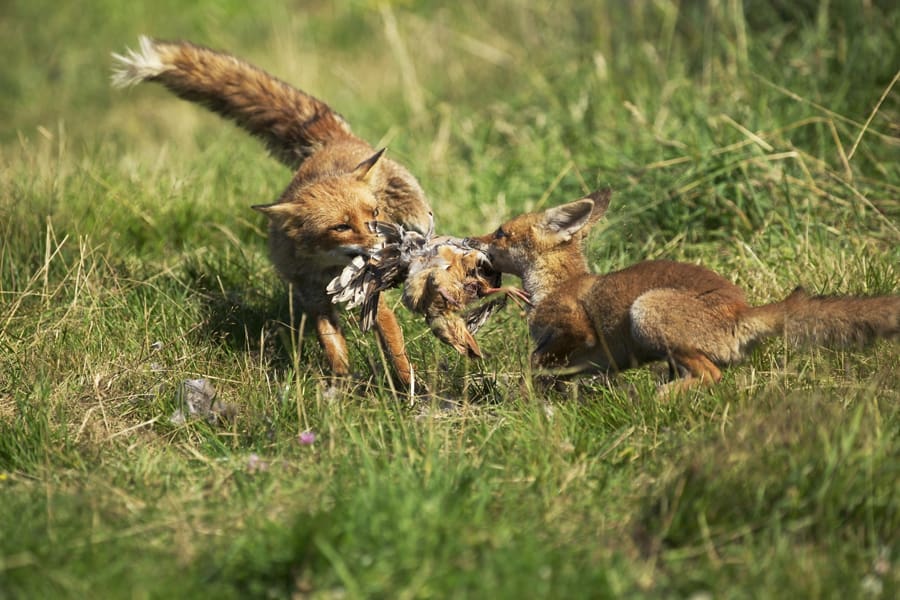
If you have gone to check on your chickens and one or two are completely missing without any signs of an attack, then the culprit is most likely a coyote, fox, hawk, or bobcat. If the chicken was small enough, it could also have been picked up and taken away by an owl.
Baby chicks that disappear could have been carried off by snakes, rats, or even feral cats looking for a meal.
Missing Chicken Heads
If you come out to your coop and only the head is missing from your chickens, the first suspect should be a raccoon. Decapitating the chicken is usually due to lack of access to the inside of the coop. If a raccoon can grab a chicken’s head and try pulling them through a fence, the head is likely to be torn off, and that will satisfy the animal for a little while.
If the head and neck are missing, then you are probably looking at a weasel or mink. Now, if the head and neck are missing and the bird’s feathers are scattered outside of the coop, your predator was probably a great horned owl.
Dead or Injured Bird with Bite Marks
If you have a dead bird, but you only see signs of bite marks or the bird is still alive but has been bitten, your attacker is probably a cat or dog. This indicates the attack was about the chase and not so much for food.
Another animal that may have caused trouble but didn’t eat the chicken or take off with it could be a skunk.
Bites to the Chest or Legs
If there are bite marks taken out of your dead chicken’s chest and legs, then you are probably dealing with a possum.
Missing Intestines
If the intestines are missing or the attack started at the chicken’s butt, then you are looking at the weasel or a mink.
What Animals Eat Chickens at Night?
The majority of the time, chickens are lost to nocturnal predators. The night is also a time when people are not around, and animals feel safer sneaking into a quiet chicken coop.
The most significant contributors to lost chickens throughout the night include owls, raccoons, foxes, and weasels. These sneaky critters can easily slip in through some of the smallest cracks or holes in the wall, or even dig themselves under chicken fences.
What Animals Kill Chickens Without Eating Them?
If you have ever happened upon the scene of a chicken massacre, but all the chickens are still in their coop and no one is missing, or only one has been eaten, you are more than likely dealing with a weasel.
Weasels enjoy the hunt and love to kill but aren’t interested in eating everything. They will eat what they need and just take pleasure in killing the rest.
Another chicken predator you should watch out for that also has no interest in eating them is your furry friends. Your domesticated cat or your beloved dog may get overly excited when chickens become riled and act up in a frenzy, and this can kill the chickens.
What Animal is The Best to Protect Chickens?
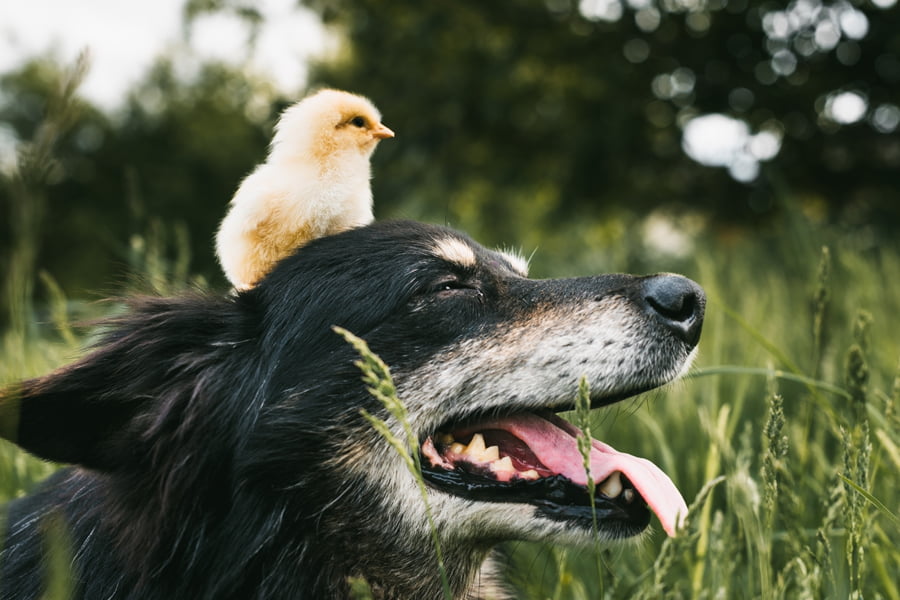
There are quite a few options when looking for a guard animal for your chickens. Some are a little more surprising than others, but each has its own benefits.
Dogs
Dogs are the most obvious choice when trying to find an animal to keep your backyard flock protected. Dogs are intelligent, loyal, and protective by nature. A well-trained dog will alert you to an intruder and will not hesitate to fight them off.
Guinea Fowl
Guinea fowl may not seem very intimidating just by looking at them, but they are loud and won’t hesitate to attack if they feel they are in danger. Unfortunately, that goes for not only animals but also humans.
Roosters
Having a few strong and large roosters in your coop or near the coop is another great way to protect your flock; these birds, like the guinea fowl, are loud and aggressive when they need to be. They will definitely sound the alarm if they are ever under attack.
What Do I Need to Know About Birds of Prey if I Keep Chickens?
Sadly, one of the biggest predators to your poultry is birds of prey. It is easier for these animals to get to your chickens because they can swoop into a coop without a sound and airlift them right out.
If you are in an area where birds of prey are prevalent, you should keep a close eye on free-range chickens and only leave them unattended when they can be watched. It is also essential to have some sort of covering over your fenced-in spaces to keep your roaming chickens safe.
Types of Birds of Prey
- Eagles
- Buzzards
- Hawks
- Falcons
- Condors
- Owls
Summing Things Up
Chicken is not only a delicious meal for humans, but it also makes a fantastic, and sometimes easy, dinner for predators living close by. Identifying the killers lurking in your backyard is the best way to prepare your coop in order to keep these animals out.


